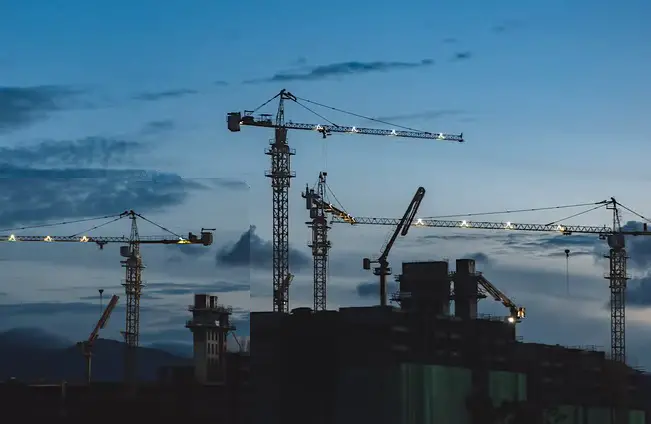China’s real estate crisis took one more step toward the abyss this week, as new numbers showed property investment dropping, new construction slowing to a crawl, and foreign analysts showed the cash flows of property developers have turned to a trickle.
The company which the crisis began with, Evergrande, has just begun a new round of audits as it attempts to reorganize, and early word out is the new audit is finding the old auditors were likely cooking the books.
Meanwhile a major Chinese mutual fund just valued the developer at only one penny per share. Similarly, other Chinese real estate developers have seen their valuations slashed by up to 70% over the past quarter as investors grow suspicious they also may have engaged in financial irregularities.
A senior official at a Chinese property firm official said in an interview, “Everyone except state-owned enterprises is in survival mode. We’re all waiting for a recovery and trying to speed up sales and reduce costs and buy less land. But at the end of the day, sales depend on the end users.”
In a Reuters report, it was pointed out the biggest problem Chinese property developers are facing is a lack of cash flow and liquidity. Firms have already mired themselves heavily in debt, and as firms begin to hit financial difficulty, like Evergrande, investment capital has dried up. Due to that, developers have begun to abandon half-finished projects, often with the hope of returning at some point once they develop sufficient cash flows. However this has enraged customers who bought the projects and expect them to be finished, and now large numbers of the customers have begun refusing to pay the mortgages they took out to buy the properties.
That in turn is making lending institutions hesitant to make loans to the real estate sector, further drying up cash flows. As a result, a recent Oxford Economics study found that there has been a 24% drop in developer cash flows year on year this July. Previously developer cash flows had grown every year since 2009.
Oxford Economics lead economist Tommy Wu said, “The crux of the problem is that property developers have insufficient cash flows – whether because of debt-servicing costs, low housing sales, or misuse of funds – to continue with projects.”
CNBC recently quoted a survey which found 25% of Chinese homebuyers were willing to take part in the “Mortgage Revolt” by ceasing all payments to their banks if construction of their new homes was suspended. This in turn is affecting lending criteria at lending institutions, making mortgages more expensive, more stringently vetted, and more difficult to acquire. In addition new buyers have now grown skittish as they see those who already bought properties are paying mortgages for properties which may never even be constructed.
Because Chinese developers rely on pre-sales to fuel their cash flows and produce the capital they need to build their projects, this reduction in new buyers is starving the industry of the capital it needs to build projects and recover.
Because thus far the government has appeared hesitant to jump in and support cash-strapped developers, investors are hesitant to buy bonds, and crashing stock prices mean they are shying away from buying shares in developers who may be in far greater financial trouble than is apparent.
Meanwhile debt has become harder to come by because the government, concerned with how much debt the property sector was accumulating, tightened the rules for securing more loans. Now Caixin Global News is reporting the government is weighing offering financing guarantees for six major developers, so they can borrow money to finish their projects.
Some look back, and say the initial trigger for the current crisis was the Coronavirus pandemic, with lockdowns greatly reducing the demand for new homes and business properties.
Mercator Institute for China Studies senior analyst Jacob Gunter said, “China has effectively not lived with [Chinese coronavirus] like the rest of the world. So there would be economic chaos if the virus were suddenly to rip through the country. There isn’t any built-up immunity – as they refused to import the mRNA vaccines – they don’t have a very advanced health care system and there’s a lot of vaccine hesitancy.”
Meanwhile other analysts point out that what happens in the property sector trickles through the economy.
Craig Botham, an analyst at Pantheon Macroeconomics sees the property crash as a hangover from the Coronavirus lockdowns. He said, “The economy has shown it can recover quickly from lockdowns, but the damage from falling asset prices in a sector worth 3.0% of GDP is far more pernicious. Households, banks, and local governments all have damaged balance sheets,”
For now everyone is waiting until after the Chinese Communist Party meeting this fall, which will reportedly be held in November. It is believed that if President Xi Jinping can secure a third term in power, he will have more political leverage to flood stimulus money into the sector. That might help developers finish projects and begin to generate cash flows that will help them build their way out of the crisis, as well as attract investors for new projects.

